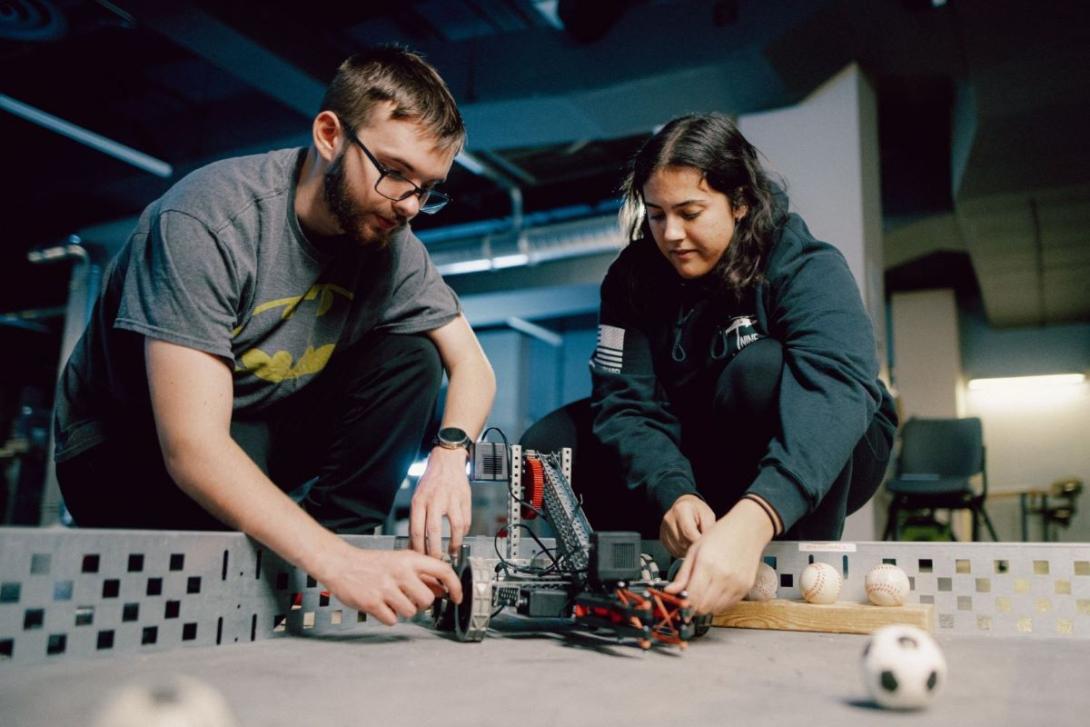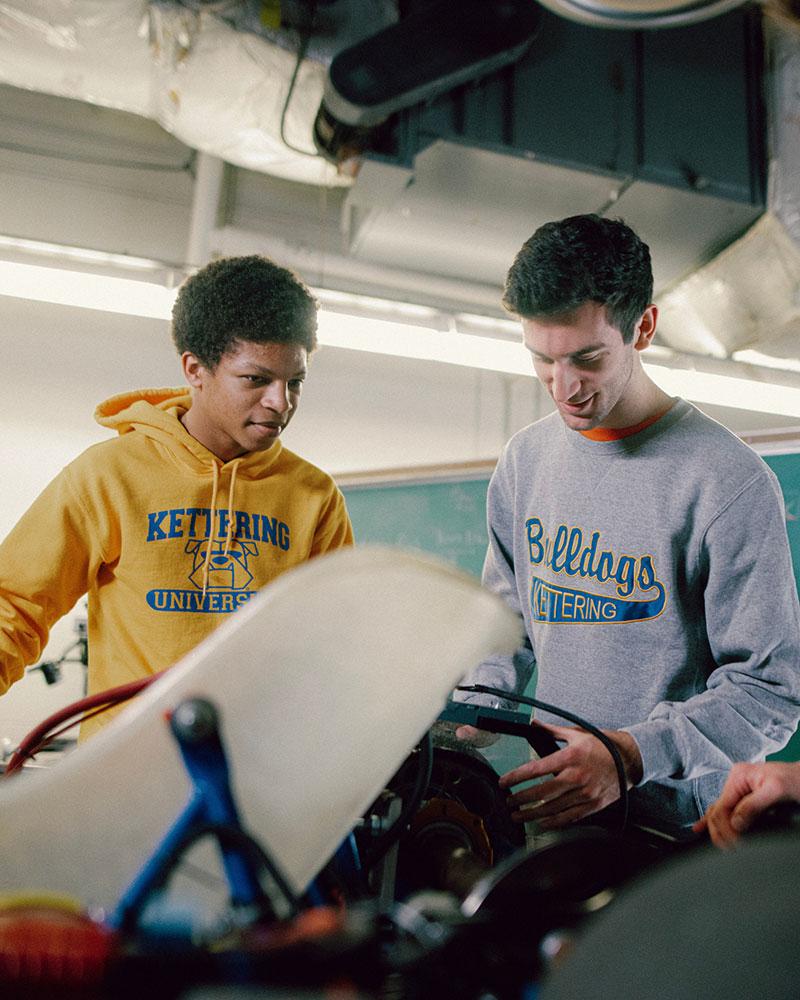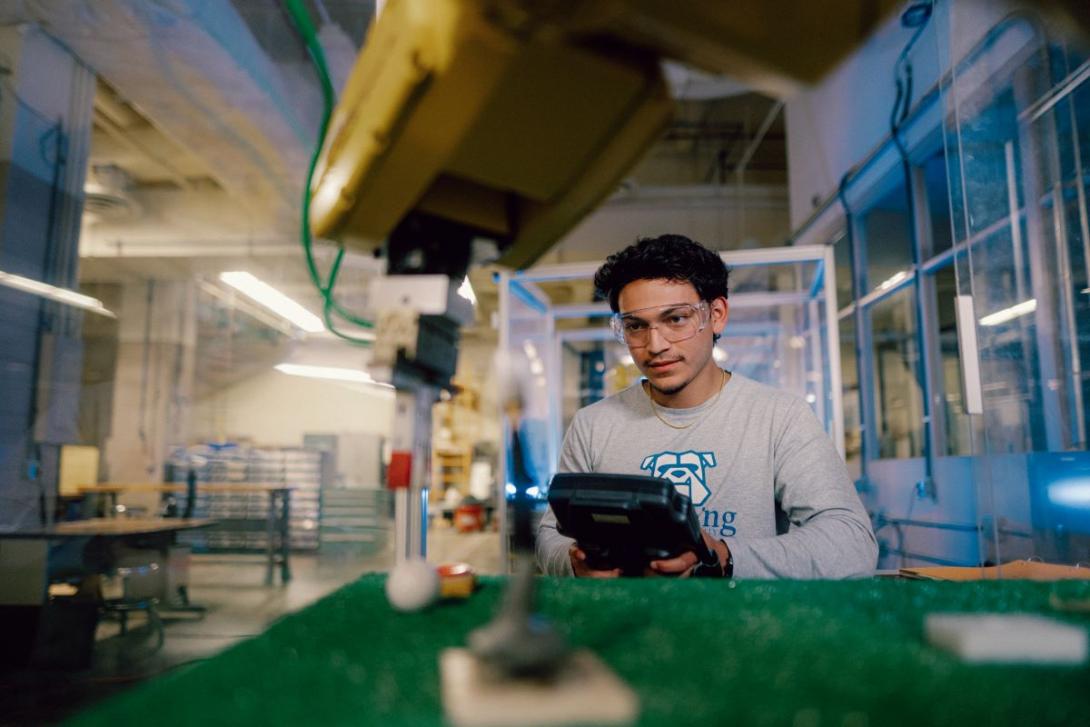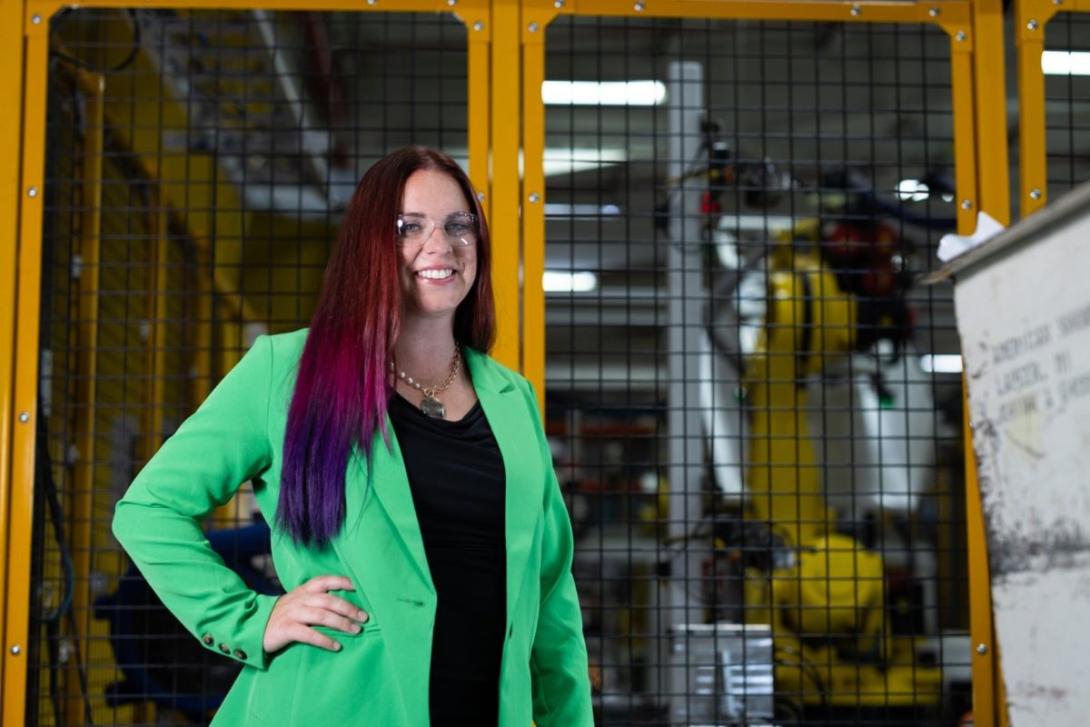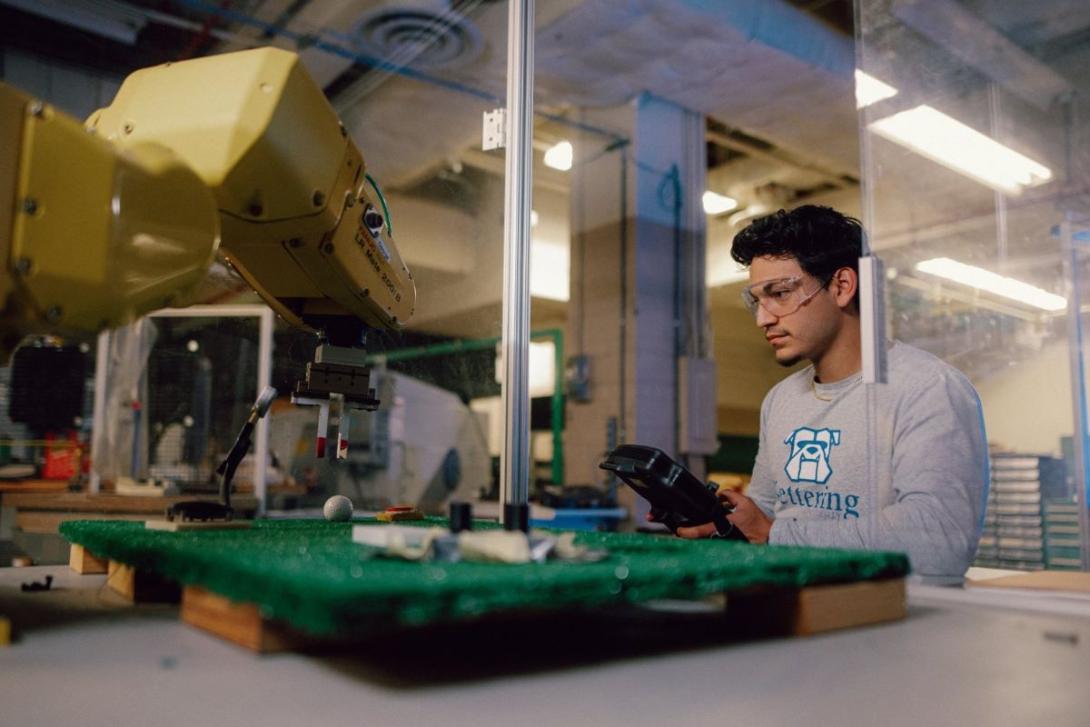Department of Industrial and Manufacturing Engineering
Maximize Efficiency and Solve Unique Business Challenges with Your Industrial Engineering Degree

Are you process-oriented and on a perpetual quest to make things better and more efficient? At Kettering, we prepare you for interesting work across all stages of production and processing.
Unlike other engineering disciplines that apply skills to specific areas, industrial engineering is an interdisciplinary field that prepares you to work in various industries. Our undergraduate degrees and master’s-level courses cover a broad range of topics, including data analysis, optimization, simulation, six sigma and quality control, advanced manufacturing processes, and ergonomics and human factors.
You’ll learn to systematically integrate customer needs, technology and economic and social factors for industrial, service and governmental organizations.
Kettering’s unique Co-op program allows you to apply your skills and earn money while earning your degree with industry partners like UPS, DTE Energy, and various government agencies and contractors.
What Are Some Examples of Industrial Engineering Jobs You Can Pursue?
Traditional industrial engineering was limited to the manufacturing sector: That is no longer the case today. Your degree gives you the flexibility to work across a broad spectrum of industries, including aerospace, agriculture, alternative energy, health care and entertainment.
Entry-level industrial and engineering jobs include:
- Process Engineer
- Operation System Analyst
- Quality Engineer
- Production Engineer
- Supply Chain Analyst
- Manufacturing Engineer
- Data Analyst
- Continuous Improvement Engineering
Kettering alumni work at some of the biggest companies in Michigan and beyond, including:
- Asahi Kasei Plastics North America
- BASF Corporation
- Dow Inc.
- General Motors
- Umicore USA Inc.
- Stellantis
Job growth in the engineering field is projected to grow 10% over through 2029, according to the U.S. Bureau of Labor Statistics. Industrial engineering salaries are on the rise, too—industrial engineers average over $95,000 annually.
Meet Growing Demand for Process-Driven Team Leaders with Kettering’s Industrial Engineering Degree Options
Will you improve workplace safety or reduce wait times for theme park rides? Develop innovative new processes to minimize manufacturing waste or work with local officials to expand public transportation? A bachelor’s in industrial engineering is the degree for people like you who want to solve challenges—big and small—that affect everyday life.
What is Industrial Engineering?
Simply put, industrial engineers make things better. It’s an interdisciplinary field that combines physical and social sciences with engineering principles to improve processes and systems.
While industrial engineers can’t predict the weather, they can interpret climate data to mitigate supply chain breakdowns or organize logistics for humanitarian relief efforts around the world. Industrial engineers are natural problem-solvers.
What will you solve with your degree?
Industrial and Manufacturing Engineering Degrees and Programs
The Department of Industrial and Manufacturing Engineering at Kettering is Committed to Your Success
At Kettering, we believe you learn best by doing. Our goal is to help students like you gain the necessary skills to be a successful engineer.
Get real-life, on-the-job experience while earning an Industrial Engineering degree. You’ll learn as a student but earn as a professional with one of our industry partners.
Spend your final semester creatively solving a real-world, open-ended problem alongside a team of engineers. You’ll identify a project work plan and share your findings in a written and oral presentation.
Your courses are supplemented with hands-on applications in well-equipped laboratory facilities including:
- Production System Design
- Optimization and Simulation Modeling
- Supply Chain Design
- Data Analytics
- Six Sigma and Quality Control
- Human Interfaces and Ergonomics
- Manufacturing Processes
- Robotics and Applied Control Systems
Gain Diverse Industry Insight from Experienced Engineering Faculty
Gain Diverse Industry Insight from Experienced Engineering Faculty
From manufacturing to health care systems, waste reduction to human resources—and nearly everything in between—industrial engineers play a vital role in continually improving the quality of our everyday lives.
Your professors will teach you how to do that—and so much more—when you earn your degree at Kettering. From your first semester on campus through your final projects leading up to graduation, Kettering’s faculty will challenge and inspire you to think bigger. Several professors conduct research and always appreciate additional help from their students.
Kettering is an inclusive and collaborative environment with room to grow. Find out how our students are shaping tomorrow’s diverse engineering workforce.
Current faculty research areas:
- Applied Optimization
- Data Analytics
- Operations and Supply Chain Management
- Additive Manufacturing, 4D Printing
- Design for Manufacturing
- Ergonomics and Human factor
- Lean Production Systems
- Quality Control and Six Sigma
- Robotics
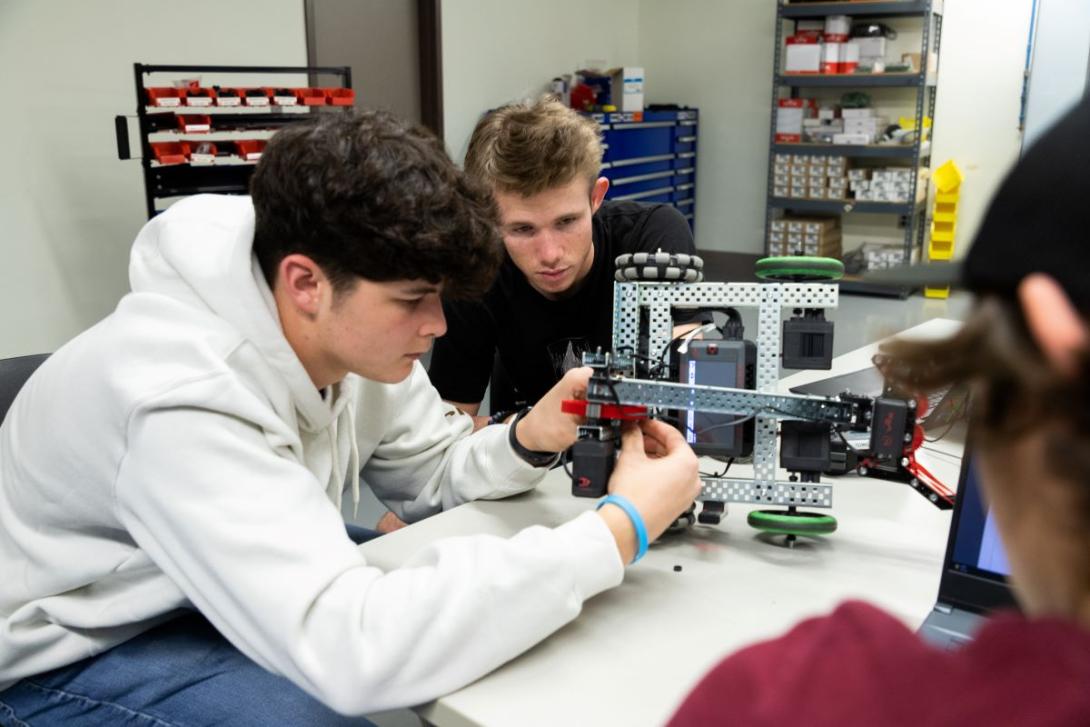
Financial Aid for Industrial and Manufacturing Engineering Programs
Financial Aid for Industrial and Manufacturing Engineering Programs
An education is an investment in your future, perhaps the most important one you’ll ever make. At Kettering, we want to be as transparent as possible about cost—earning your degree isn’t cheap. But it may be a lot less expensive than you think. Here’s why:
- Generous Financial Aid: 99% of Kettering students receive grants, loans and/or work-study offers. You may be eligible for a merit-based scholarship ranging anywhere from $8,500 to $17,500 annually. There are engineering-specific scholarships and a growing number of need-based awards for students.
- The Kettering Co-op: Earn while you learn. On average, students earn between $45,000 and $70,000 over the course of their program. And that money is in addition to whatever scholarship, need-based aid or other financial assistance you may qualify for.

Engineer Your Success with the Department of Industrial and Manufacturing Engineering
Are you ready to take the next step toward your engineering career? If you’re interested in learning, please don’t hesitate to reach out to us.

